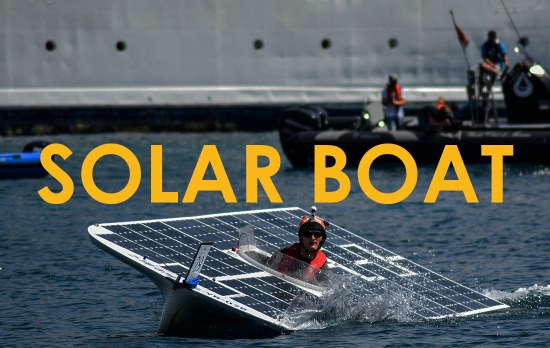Are fully electric ships a utopia?
A motor yacht glides silently and emission-free through the water. The future of electric-powered engines in pleasure craft looks rosy indeed, but the commercial shipping industry is a different matter.
Rinze Geertsma, marine officer and PhD candidate in Maritime & Transport Technology, once participated in a project to build an all-electric ship in Great Britain. The frigate generated all the electrical energy needed to power the vessel and run all the systems on board. “But the electrical systems for this took up so much space in the ship that they have since reverted to hybrid solutions,” he explains.
Quicker and quieter
So Geertsma spent the last four years studying alternative ways of reducing emissions. In an age when the commercial availability of batteries and other electrical alternatives is increasing exponentially, he included two new goals alongside emission reductions: with the help of electrical solutions, ships should be able to accelerate more quickly and sail more quietly. Geertsma puts it in layman’s terms: “You want the concept of a Toyota Prius combined with the performance of a Tesla.”
He began his thesis with literature
research and discovered that electrical shipping was already quite common. “Mainly ferries that shuttle between A and B.” He thinks the TESO that sails between Den Helder and Texel could be made fully electric. “They have one in Norway, the Ampère, which uses batteries and electric motors. They plug the vessel in as soon as it docks and the batteries are fully charged even before the new passengers are all on board.”
However, even this solution is not completely climate neutral. ‘Batteries have a limited service life, and you also have to wonder where the energy to charge the batteries comes from.’ He compares it with electric driving in the Netherlands. “Most of our energy is not produced from renewable sources, so how green is your electric car actually?” In that respect Norway, that generates 80% of its energy needs with renewable hydropower, is doing better than the Netherlands, where only 14% of electricity is obtained from renewable sources.

Photo © TU Delft Solar Boat Team
An innovative dream team
And yet, a 100% sustainable boat does exist, and it is on the TU Delft campus. It is powered by solar energy and owned by the Solar Boat Dreamteam, a group of enthusiastic students who build a new sustainable version every year. In previous years they sailed through quiet canals and harbours, but this summer they are going to sea, which means the boat will have to undergo a complete metamorphosis. It will need to be able to face waves, strong currents and stormy weather if the three crewmembers are to sail from Monaco to Cannes and back. “We also want to set a world record by crossing the channel from Calais to Dover using only solar energy,” says Exposure Manager Redmer Aarnink.
He also hopes that the techniques and innovations conceived by his team will help to make the maritime sector more sustainable. “Although we don’t think that a boat covered in solar panels is the solution.” He is personally more inclined towards hybrid solutions. “Or an alternative system of shipping,” he concludes. “In 2020, the Norwegians will start testing small autonomous boats that carry a single container.” This would make many truck journeys superfluous; instead, a boat with container would shuttle between various harbours. “It would be amazing if you could do that on a large scale!”